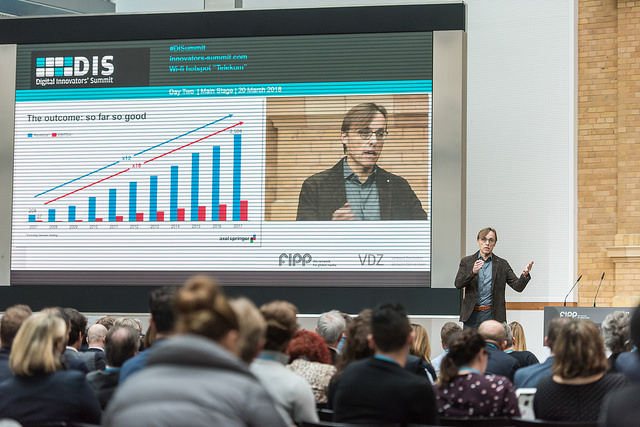How Axel Springer came back from the dead
“Axel Springer missed the boat,” said Dr. Andreas Wiele, President Classifieds and Marketing Media at Germany’s largest media group Axel Springer, describing the events at the birth of digital publishing in front of hundreds of media executives during the second day of the Digital Innovators’ Summit in Berlin. He described the rapid decline of the publishing empire built by journalist and entrepreneur Axel Springer, the man who created iconic German newspaper and magazine titles such as Bild and Die Welt.
The truth, said Wiele, is that around the turn of the Millennium Axel Springer did not have a digital publishing strategy. From Europe’s most successful publishing business with record sales and record profits Axel Springer witnessed a “horrible loss” of €200 million in 2001. At the time the Financial Times reported: “Europe’s largest press conglomerate (is) a mere internet midget.”
In fact, said Wiele, the digitalisation of publishing truly brought about “a near death experience” for the company. Overnight the publisher needed to come up with a radical strategy to survive. “If you are convinced that your business will go down because there is simply a better offering and technological breakthrough, then there is only one way forward: you have to cannibalise yourself, disrupt yourself, and trust yourself. This needs to happen at full speed and determination because the opposition do not own a legacy business and do not mind attacking your business.”
In this process legacy publishers need to ask themselves what sets them apart from the rest and what you can do better than those starting out in your space of business, said Wiele. In Axel Springer’s case they realised that their publications essentially combined three individual businesses: selling journalistic content to consumers, selling classified advertising and marketing. The only thing that bound these three businesses together was the physical paper itself.


